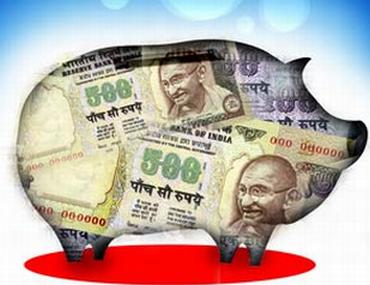 | « Back to article | Print this article |
I Dream: Of owning a home
In the third part of the 'I Dream' series Anil Rego explains how you can not only dream but actually plan and buy your dream home.
The first part of this series explained how you could become a millionaire by 30!
The second dealt with how you can lead a debt-free life.
If there is one dream that you have held close to your heart, then it ought to be of an 'Heavenly abode' that you intend to own. However, this means that you need to deploy a substantial part of your earnings.
Buying a house requires a lot of due diligence and herculean amount of documentation, it is thus better to spend some time understanding the nuances, prior to taking the plunge to invest to avoid making it a nightmare.
Due diligence
Conducting due diligence is an essential part of buying / constructing a home. There are legalities involved and you may need to take the assistance of a legal advisor to prepare / proof read the agreement.
Then, there is also the tax angle to this thereby suggesting that the agreements may need an auditor / tax experts inputs as well for example if both self / spouse intend to claim tax benefit then both property and loan should be in joint names.
This may be an added cost to what you are likely to incur, this is pertinent.
Illustration: Uttam Ghosh
Evaluating the financial burden
With the house comes the need to put in hard earned earnings as down payment and in all probability the EMI which is going to pinch a good part of your earnings.
Foreseeing the impact of these aspects on your other key financial goals is pertinent.
There is also the tax angle to be considered, the HRA exemption claimed earlier would not form a part going forward, however, the Housing loan benefit would kick-in (albeit after occupation of house).
If this is a second residential property investment, then there are aspects which need closer focus, such as the likely rental yield and accessibility to water/power supply, else you may end up making an unattractive investment.
Real estate, as an investment, has to be evaluated on the grounds of the capital appreciation that it would offer in the medium term.
Illustration: Uttam Ghosh
Title to Property
The legal status of the property is one of the key issues that you should address before finalising on a property.
It is not advisable to give any advance before getting confirmation about the legal status of the property.
Ensure that the property is in the name of the seller (Check original copy) and that the full right to sell the property lies with only the relevant counterparty and no other person.
Sometimes the seller may have taken a loan by pledging the original deed. It is better to get the original deed examined by a lawyer.
Along with the title deed, the buyer can also demand to see the previous deeds of the property available with the seller.
Illustration: Uttam Ghosh
Multiple or NRI (Non-Resident Indian) sellers
Check the title deed to ascertain if there is more than one owner and ensure that a release certificate is duly obtained from the other owners to avoid any legal hassles after transfer of title.
An NRI can also sell his property in India by giving a Power of Attorney to a third person authorising him the right to sell the property on his behalf.
Such power of attorney should be witnessed and duly signed by an officer in the Indian embassy in his province.
No Objection Certificate
It is vital to ensure that the property does not have any legal dues and this can be deduced by obtaining a certificate of encumbrance from the sub registrar office where the deed has been registered.
You can insist on checking encumbrance certificate for a maximum period, this should ensure that the said property does not have any legal dues and complaints.
Taxes and Dues to Government
Procure the Property tax receipts paid by the seller, with the latest receipt being most important. Do a quick cross-check with the Government and municipal offices to ascertain whether all taxes have been paid till date.
If the seller does not have the original property tax paid receipt, then contact the village office with the survey no. of the property and confirm the original owner of the property.
Also, ensure that all electricity / water bills are cleared up-to-date, insist with the seller to clear dues if any.
Illustration: Dominic Xavier
Agreement and Registration
Agreement can be designed with the help of a lawyer, it is prepared on a Rs 50 stamp paper, the document should clearly state actual cost, advance amount, time span within which the actual sale should take place and how to proceed in case of any default from either parties, to cover the loss.
The agreement should be duly signed by the parties and two witnesses; this is a document which will ensure that any default by either party can have legal consequences by the other.
Illustration: Uttam Ghosh
Key Takeaways
These are the key takeaways
- Get a legal head and tax expert / auditor to review your agreements to ensure that there are no glitches in the title and to optimise on tax benefits thereof
- Title to the property needs to be clean, if there are multiple sellers obtain the relevant authorisation from all the sellers enabling transfer of property
- NRIs can sell his property in India by providing POA to third party, check if the papers are rightly in place before embarking on sealing the deal
- NOC and all bill receipts should be obtained to ensure that there are no pendings
- Agreement & Registration is the most vital part of buying / constructing a home, hence, make sure to participate / understand the nuances of this process
Registration is a key ritual while purchasing the property; this is conducted in a sub registrar office. Handwritten documents are not acceptable unless by ones who hold the scribe license, hence, the document should be verified by a lawyer and then printed on a stamp paper.
Any purchase above Rs. 5 Lakh would call for Pan Card copy of the buyer and seller during registration. Alternatively one can submit the Form 16 whilst registering the property.
Illustration: Uttam Ghosh
Expenses
Registration of property would include Stamp Duty, registration fees, Document writers/ lawyers fees etc.
These could add up to be a sisable amount, duty will depend on the cost of the property and varies from Municipality to Corporation to Panchayat, and could range from about 4% -6% of the cost of the property.
Registration fees would be about 2% of the amount for which the deal is finalised, the document writers/lawyers fee could vary based on their individual practices, however, there are prescribed limits connoted by the Government and they cannot charge beyond the specified limit.
After registration, the registered document will be received after 2-3 weeks, from the registrar office.
This ordeal doesn't end here, the whole procedure ends only after updating the owner's name in the village office records. An application with a copy of the registered deed would suffice to get this executed.
Phew! That's definitely a lot of stuff for owning a home, but guess it's all worth it when you step into your home with a sense of pride and warmth.








